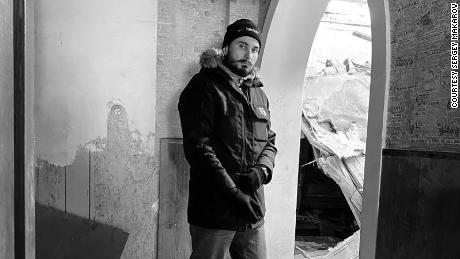A story from the War…“My escape from Mariupol”
Sergey Makarov, 34, a photographer from Mariupol told CNN about his experience surviving the Russian siege and his eventual evacuation.
“On February 24th, I woke up to a friend calling me. He said the war had begun. He suggested I move with my family to Ivano-Frankivsk. I refused. It seemed to us that Mariupol was a safe place in this time. Then on February 26th, air raid sirens began to sound in the city.
The suburbs came under fire. Many people left. Every day got worse.
On March 1st, I realized that it was becoming increasingly difficult to leave Mariupol. Russian troops began to take control of the roads from the city.
On March 3rd, electricity and water were turned off. I have not washed since March 4th. We could not communicate. And we were forced to walk to each other to share information.
Looting had already begun. In the first days of the war, I bought food and about 100 liters of gasoline. This is what ultimately saved us. On March 5th, the gas supply to houses got turned off. It was the only thing we had left for light and heating.
After that, the nightmare began. It was -9C (around 16F) outside at night. At the same time, we were hiding from bombs and air strikes. We cooked food on fires. We couldn’t get warm. No words can describe what it was like.
There were 100 people in a space of 150 square meters, including young children. It’s a concrete basement without light and ventilation.
All this time I was trying to contact people outside the city, charging my phone from the generator from the Red Cross.
On March 8th, the worst began. Russia began to launch airstrikes. On March 13, my friends told me that it was possible to get out using the old road to Berdyansk.
There was a mined checkpoint and you had to drive around the mines. We decided we’d rather take the risk than stay to die in the city.
On March 14th we left in a column of eight cars. There wasn’t any luggage, only people and animals. On March 15th, we left Berdyansk for Zaporizhzhia. There were about 20 Russian checkpoints along the way. They checked our luggage, phones, messages, laptops.
In a couple of hours we reached the Ukrainian checkpoint and were almost free. Now we want to go as far west as possible”.


